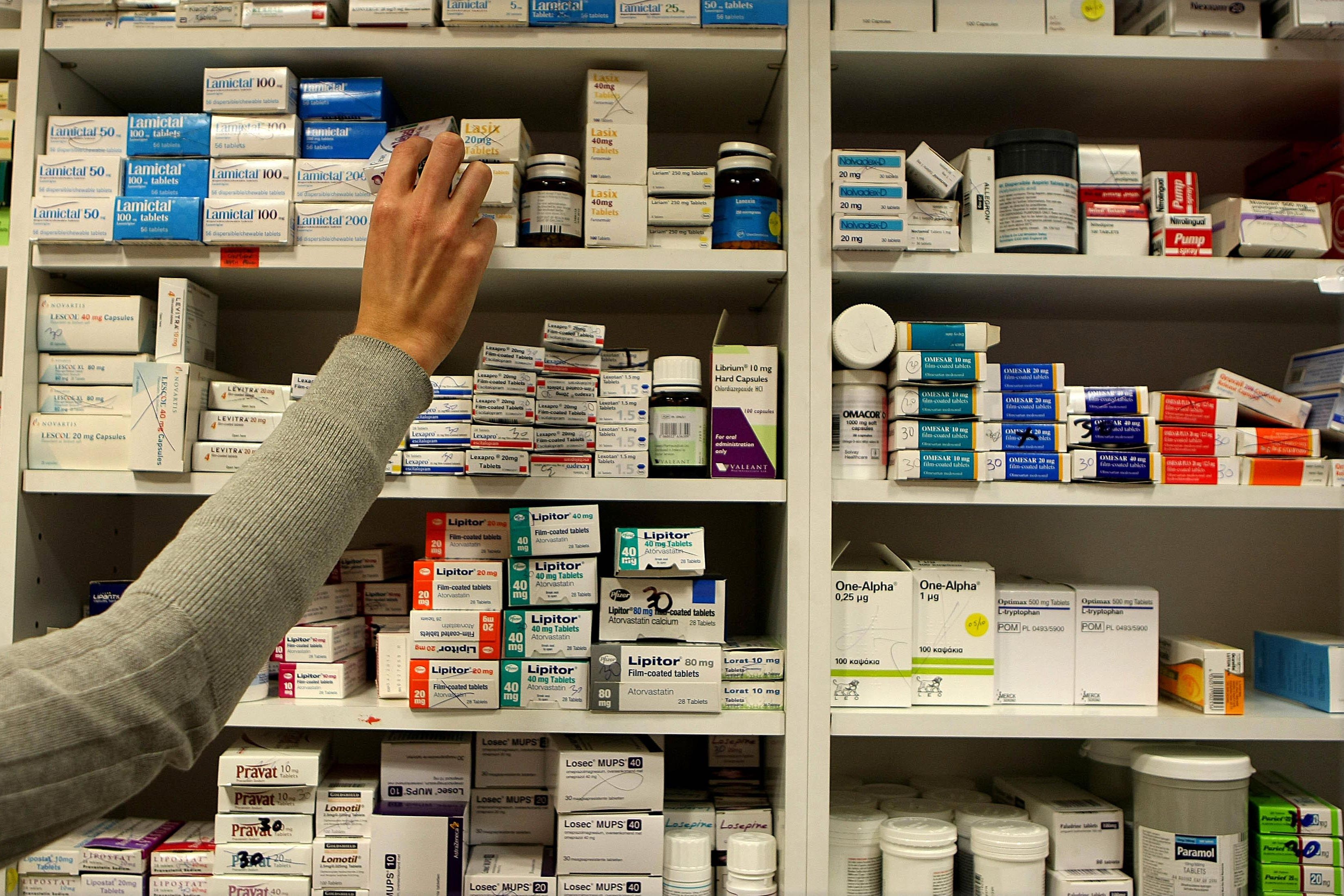Shopping data on medicines ‘could help spot ovarian cancer cases earlier’
Scientists found pain and indigestion medication purchases were higher among those later diagnosed with ovarian cancer.

Your support helps us to tell the story
From reproductive rights to climate change to Big Tech, The Independent is on the ground when the story is developing. Whether it's investigating the financials of Elon Musk's pro-Trump PAC or producing our latest documentary, 'The A Word', which shines a light on the American women fighting for reproductive rights, we know how important it is to parse out the facts from the messaging.
At such a critical moment in US history, we need reporters on the ground. Your donation allows us to keep sending journalists to speak to both sides of the story.
The Independent is trusted by Americans across the entire political spectrum. And unlike many other quality news outlets, we choose not to lock Americans out of our reporting and analysis with paywalls. We believe quality journalism should be available to everyone, paid for by those who can afford it.
Your support makes all the difference.Shopping data on over-the-counter medicine purchases could help spot ovarian cancer cases earlier, research has suggested.
A study involving nearly 300 women found pain and indigestion medication purchases were higher among those who were later diagnosed with ovarian cancer, compared to women who did not have the disease.
The researchers said their findings, published in the journal JMIR Public Health and Surveillance, showed a change in purchases up to eight months before diagnosis.
Using shopping data, our study found a noticeable increase in purchases of pain and indigestion medications among women with ovarian cancer up to eight months before diagnosis
Lead author Dr James Flanagan, from Imperial College London’s Department of Surgery & Cancer, said: “The cancer symptoms we are looking for are very common, but for some women they could be the first signs of something more serious.
“Using shopping data, our study found a noticeable increase in purchases of pain and indigestion medications among women with ovarian cancer up to eight months before diagnosis, compared with women without ovarian cancer.
“This suggests that long before women have recognised their symptoms as alarming enough to go to the GP, they may be treating them at home.
“As we know, early diagnosis of ovarian cancer is key to improving chances of survival, we hope this research can lead to ovarian cancer symptoms being picked up earlier and improve patients’ options for treatment.”
Symptoms of ovarian cancer can be unclear in the early stages of the disease, which often include loss of appetite, stomach pain and bloating.
According to the researchers, this can often lead to women buying medication from a local pharmacy to alleviate their symptoms – without visiting their GP.
It is the sixth most common cancer in the UK, with about 7,400 women diagnosed each year and more than 4,000 yearly deaths.
Around 93% of women diagnosed with ovarian cancer can survive for five years or more if diagnosed at stage one – the earliest stage – compared to just 13% when diagnosed at the latest stage, ie, stage four.
As part of the study, funded by Cancer Research UK, the researchers analysed loyalty card data of 283 women.
Of these participants, 153 had been diagnosed with ovarian cancer.
The researchers studied six years’ worth of purchase histories in the loyalty cards for two UK-based high-street retailers.
Participants were also asked to complete a short questionnaire about ovarian cancer risk factors, along with the symptoms they experienced – if any – and the number of visits to their GP.
The results showed women with ovarian cancer began to recognise their symptoms about four-and-a-half months before diagnosis.
Of those who visited a GP to check their symptoms, the first visit occurred about three-and-a-half months before diagnosis.
The experts said further research is needed to confirm their findings but as part of the next steps, the team is also investigating whether purchases of over-the-counter products could be used in a similar way for other cancers, such as stomach, liver and bladder cancers.
Dr David Crosby, head of prevention and early detection research at Cancer Research UK, said: “Whilst further research with more patients is needed, this study indicates exciting potential for a new way to detect cancer earlier and save lives.”